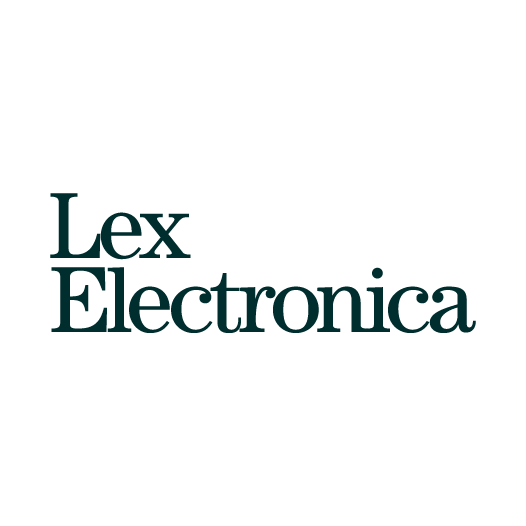Web sémantique : Quelles perspectives pour l’information juridique ?
1 Maitrise en sciences de l'information (M.S.I), Université de Montréal.
Résumé
Le Web sémantique, ayant pour ambition de remplacer le « Web des documents » de plus en plus difficile à exploiter en raison de sa croissance exponentielle, prend finalement son envol après plusieurs années de recherches concertées. La théorie à la base de ce mouvement et les standards proposés deviennent de plus en plus reconnus par l’industrie des nouvelles technologiques et sont désormais utilisés pour le développement d’applications nécessitant un cadre commun d’analyse pour publier, échanger et restituer l’information provenant de sources hétérogènes. Bien que la recherche sur l’automatisation du traitement de l’information juridique ne soit pas nouvelle, la formalisation sémantique de ce corpus documentaire par le biais d’ontologies et sa structuration en langage Ressource Description Framework (RDF) apportent des résultats de plus en plus prometteurs. Cette nouvelle approche apporte des réponses concrètes pour des grands enjeux de gestion de l’information juridique, en particulier en ce qui concerne la modélisation, la normalisation et l’interopérabilité de diverses bases de données.
Dans cet article, nous introduisons le cadre théorique du Web sémantique et définissions les notions essentielles qui s’y attachent. Nous présentons ensuite les apports potentiels des standards du Web sémantique dans la gestion de l’information juridique avant de discuter plus spécifiquement de l’enjeu de l’ingénierie des ontologies juridiques permettant la représentation explicite des contenus des ressources documentaires. La question qui anime notre recherche est la suivante : les ontologies juridiques produites par des ingénieurs de connaissances en vue de réduire la complexité du langage juridique et de faciliter le stockage et l’accès aux documents juridiques peuvent-elles englober la complexité des concepts juridiques sans imposer un formalisme réducteur?
Un bref survol de nouvelles perspectives méthodologiques de construction des ontologies viendra en appui à l’hypothèse que le cadre théorique du Web sémantique, basé sur une structuration formelle des concepts juridiques, peut mener à un meilleur accès à l’information législative et est susceptible d’accroître l’interopérabilité et de faciliter l’échange d’informations entre les institutions. Les travaux sur le développement du Legal Knowledge Interchange Format (LKIF) seront évoqués afin d’illustrer ce propos.
English
The Semantic Web, that aims to replace the «Web of documents» increasingly difficult to operate due to its exponential growth, finally takes off after several years of collaborative research. The theory behind this movement and the standards it proposes become increasingly recognized by the information technology industry and are now being used for the development of the applications that require a common framework to publish, share and restore the information from heterogeneous sources. Although research on automating the processing of legal information is not new, semantics formalization of this documentary corpus through ontologies and by the means of the Resource Description Framework (RDF) provide promising results. This new approach proposes concrete answers to the major challenges of managing legal information, especially modeling, standardization and interoperability of different legal information databases.
In this article, we introduce the theoretical framework of the Semantic Web and we define related notions. We then present the potential contribution of the Semantic Web standards in the management of legal information before discussing more specifically the issue of legal engineering ontologies for the explicit representation of the legal information resources. The question that drives our research is the following: can legal ontologies, designed by the knowledge engineers in order to reduce the complexity of legal language and facilitate the storage and access to legal documents encompass the complexity of legal concepts without imposing a binding formalism?
A brief overview of new methodological approaches for building legal ontologies will support the hypothesis that the theoretical framework of the Semantic Web, based on a formal structure of legal concepts can lead to a better access to legislative information and is likely to increase interoperability and facilitate the information exchange between institutions. The development of the Legal Knowledge Interchange Format (LKIF) will be discussed to illustrate this hypothesis.
Citation recommandée
Teresa Bascik, «Web sémantique : Quelles perspectives pour l'information juridique ?», (2014) 19-1, Lex Electronica 25 En ligne : https://lexelectronica.openum.ca/s/44.Licence
© Teresa Bascik
